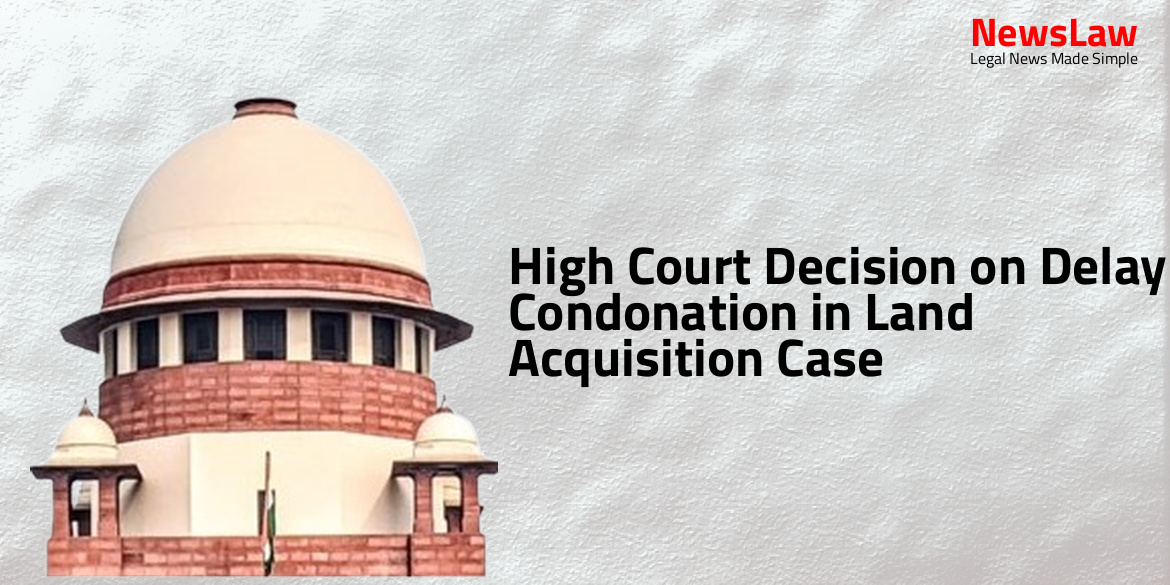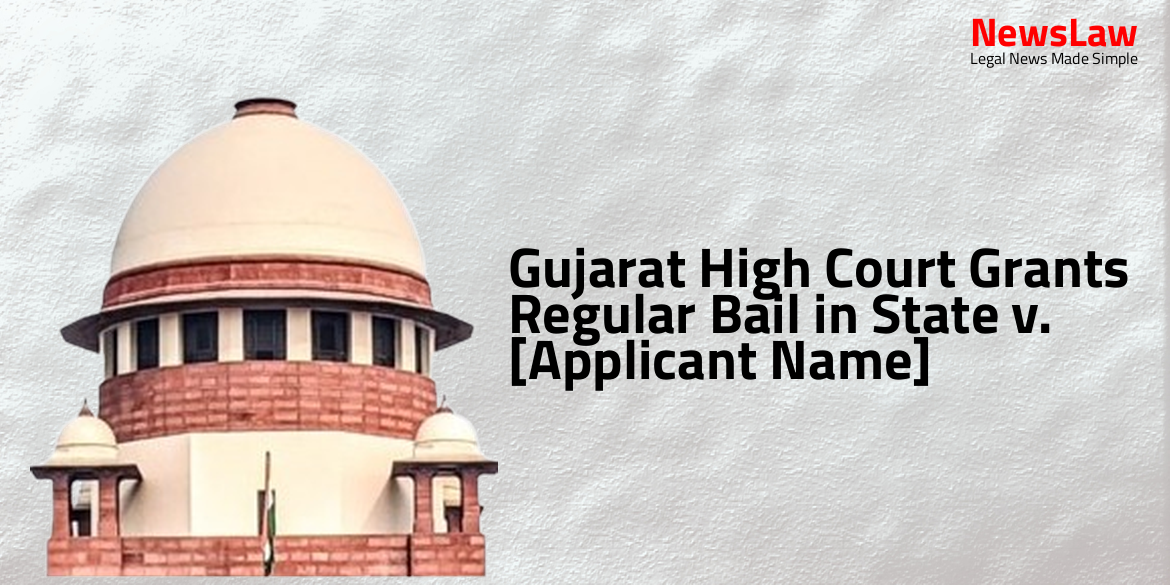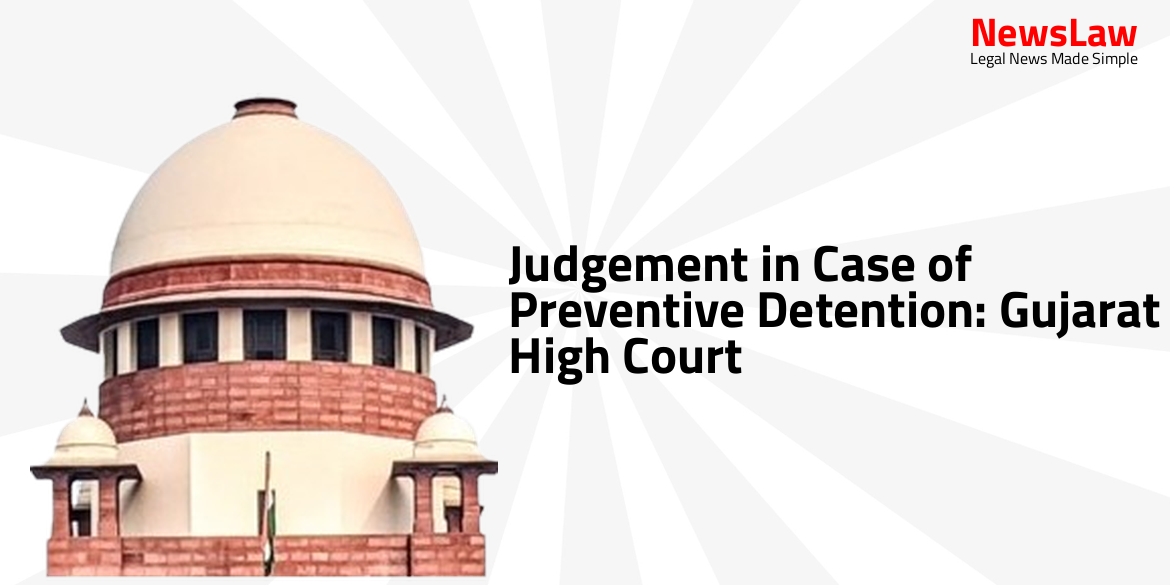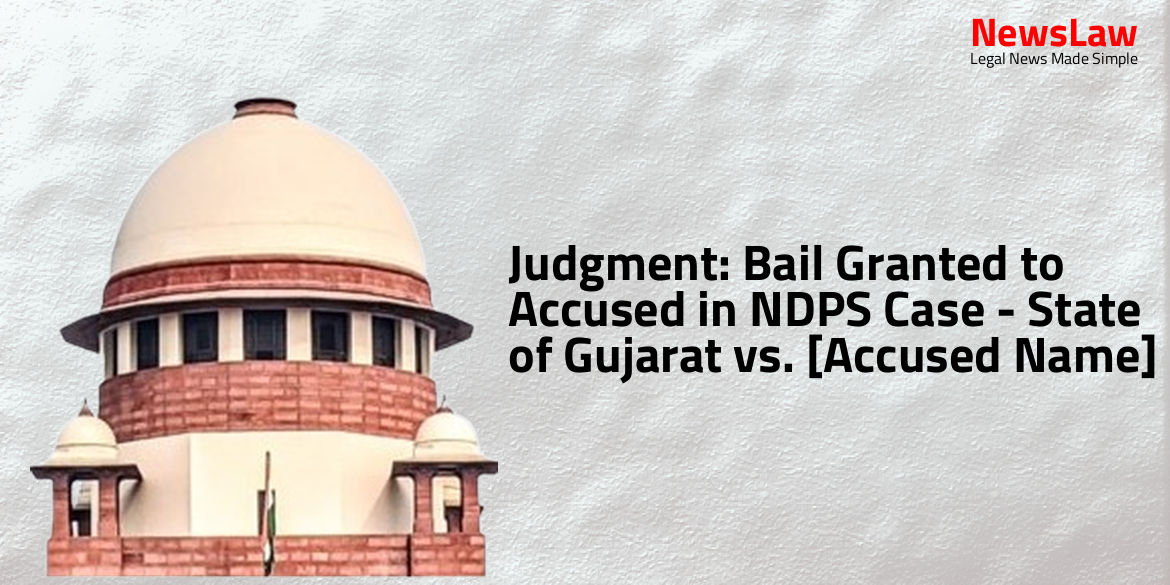In a recent judgment by the High Court of Gujarat, a decision was reached concerning delay condonation in a land acquisition case. The court addressed the conduct of the applicant, who had delayed in applying for a Certified Copy of the Judgment and Award after receiving compensation. Despite citing illness in the family as a reason for the delay, no medical evidence was provided. The court emphasized the importance of providing sufficient cause for condonation of delay and highlighted the need for diligence in legal proceedings. Stay tuned for more insights on this crucial legal matter.
Facts
- Applicant/s are poor agriculturists
- Lands were acquired for irrigation scheme
- Less amount of compensation awarded
- Applicant/s preferred Land Acquisition Reference case under Section 18 of the Land Acquisition Act, 1894
- Award passed on 06.08.2021
- Amount paid on 14.10.2022
- Certified Copy of the Judgment and Award applied on 22.09.2022
- Certified Copy ready for delivery on 08.10.2022
- Delay in filing Civil Applications due to illness in applicant/s family resulting in delay
Arguments
- Applicants delayed in applying for Certified Copy of the Judgment and Award
- No action taken by the applicants even after receiving Certified Copy
- Illness in family members cited as a reason for delay without medical evidence
- Vague and general averments made in the application for condonation of delay
- Applicants did not challenge Land Reference Court order after receiving compensation
- Delay in filing application for condonation of delay
Analysis
- The applicant received the Certified Copy on 13.10.2022 but remained inactive in filing the Appeals.
- Applicant applied for the Certified Copy much after the period of limitation had expired.
- The conduct of the applicant in challenging the decision of the Reference Court after receiving compensation on 14.10.2022 is criticized.
- The applicant, though a poor agriculturist, is not entitled to claim more compensation after accepting the original award.
- The affidavit for condonation of delay was sworn on 06.02.2024 and presented on 04.03.2024.
- The Court cannot condone the delay based solely on sympathetic grounds.
- Sufficient cause is a condition precedent for the Court to exercise discretion in condoning delay.
- Rules of limitation are designed to ensure legal remedies are preserved for a legislatively fixed period.
- The appellant must provide sufficient cause for condonation of delay under Section 5 of the Limitation Act.
- If sufficient cause is not provided, the delay cannot be condoned.
- The Court cannot grant condonation of delay easily due to the longer delay and negligence on the part of the State petitioner.
- The court’s discretionary powers for condonation of delay under Section 5 of the Limitation Act are not unlimited and unbridled.
- The law of limitation serves the general welfare by putting a period to litigation.
- A strict approach is needed for the first situation, while a liberal delineation is required for the second.
- The conduct, behavior, and attitude of a party in terms of inaction or negligence are essential factors for consideration.
- Courts must balance the scale of justice for both parties, and discretionary powers must be exercised systematically and reasonably.
- Whims, fancies, prejudices, or predilections should not influence the exercise of discretionary powers.
- Judicial powers, including discretionary powers, must be exercised within reasonable bounds known to the law.
- The concept of a liberal approach must be reasonable and not completely unfettered.
- There is a difference between inordinate delay and a delay of short duration; prejudice applies to the former but may not apply to the latter.
- No error found in the impugned judgment and order.
- In cases of inordinate delay, a strict approach is warranted due to the principle that ‘delay defeats equity.’
- Sufficient cause for a delay of 3230 days is not evident in the present circumstances.
- The Court concluded that there is willful latches and negligence on the part of the petitioner – State in defending its right.
Decision
- Application for Certified Copy was filed after the period of limitation for filing the Appeal had expired
- The conduct of the applicant/s does not justify exercising discretionary power in their favor
- Applicant/s were negligent in preferring the appeals and remained inactive after receiving certified copies
- Civil Application stands rejected and notice is discharged
- Present petition is devoid of merits and is dismissed accordingly
- Registry to place a copy of the order in each matter and rule is discharged
- Applicant/s received compensation on 14.10.2022 but chose to clear pending dues instead of filing appeals
- No interference is called for in the matter
Case Title: PATEL CHIMANBHAI GOVINDBHAI Vs. STATE OF GUJARAT
Case Number: R/CA/1405/2024



